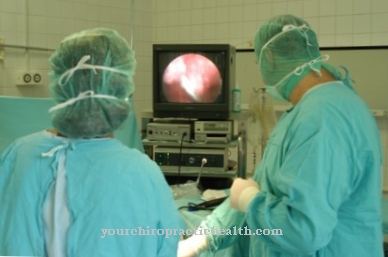diphtheria is a serious infectious disease that can be fatal if left untreated. In the past, children in particular were at risk of this disease, which can quickly be transmitted from person to person through droplet infections such as sneezing and coughing. Typical signs are fever, shortness of breath and abnormal breathing noises.
What is diphtheria?

© jozsitoeroe - stock.adobe.com
Diphtheria is an infectious disease caused by bacteria. It is the bacterium Corynebacterium diphtheriae.
The peculiarity of this bacterium, however, is that it can only break out if it can produce toxins. Toxins are able to influence the stability of the membrane in the cells and thus cause their destruction.
The disease always manifests itself locally in the infected areas of the human organism and leads to inflammation there, which ultimately leads to tissue death.
causes
The cause of diphtheria is always pathogens that cause an infection. The pathogen is also the cause of the poison being formed and causing the infected cells to die. A droplet infection from person to person is responsible for the fact that the pathogen can be passed on. This always happens through sneezing or coughing.
Diphtheria is usually preceded by a cold. Basically, however, the toxins (poisonous substances) are the cause of the outbreak of the disease, because they produce the inflammation of the upper airways and acutely drive it forward. They also damage the mucous membranes and this is how the whitish pseudomembrane emerges from the dead tissue of the damaged cells. This increases the number of life-threatening breathing difficulties and it is not uncommon for damage to the heart and also to the kidneys, nerves and blood vessels.
You can find your medication here
➔ Medication for shortness of breath and lung problemsSymptoms, ailments & signs
The bacterial toxin causes local damage in diphtheria, but also a systemic effect, i.e. affecting the entire body. The first symptoms appear after an incubation period of two to seven days. This leads to a sore throat and difficulty swallowing. The patients have a fever, feel seriously ill, are tired and exhausted.
In most cases, diphtheria affects the nasopharynx. Yellowish-white coatings form on the tonsils, which slowly spread throughout the nasopharynx and can lead to the dreaded obstruction of the airways. These plaques are painless and will bleed when you try to pull them off. They are known as pseudomembranes.
It is characterized by a sweet smell from the patient's mouth, similar to that of fermenting apples. If the nose is involved, a bloody, purulent runny nose occurs. In some of the patients there is pronounced swelling of the neck and lymph nodes, which are clearly visible from the outside, the so-called Caesarean neck.
This can also narrow the airways. Diphtheria affects the skin less often. In skin diphtheria, pustules, blisters, skin ulcers and swellings occur. The feared consequences of the systemic spread of bacterial toxins are inflammation of the heart muscle with the development of cardiac arrhythmias and nerve damage to the nerves in the head and neck area.
course
The course of diphtheria is accompanied by flat coverings, the pseudomembranes mentioned above. These are generally located on the tonsils, the roof of the mouth, the uvula and also on the nasal mucosa. In a very severe course of diphtheria, the symptoms spread very quickly and the patients complain of severe shortness of breath as a result of a high fever and severe vomiting.
Lymph node swelling is also a common symptom of diphtheria, and liver and kidney damage also occurs in some cases during its course. Complications can also arise if diphtheria is not treated in good time, including soft palate paralysis and myocarditis.
Complications
Due to the different forms and the intensity of reportable diphtheria, the complications that occur are quite different. In the most dangerous form, toxic diphtheria, a narrowing of the airways occurs despite treatment. The infection can quickly spread to other organs and affect the liver and kidneys.
The poison leads to inflammation of the heart muscle, also known as myocarditis, and can quickly lead to death without treatment. The poison often attacks the nervous system. In this case, the complications are manifested by paralysis of various muscles.
If the eye muscles are affected, visual disturbances occur, and damaged facial nerves are expressed by rigid facial expressions. If there is a pharynx or larynx diphtheria, the complications are evident from swallowing and speech disorders. The inflammation caused by the infection can persist for several weeks despite medical treatment.
Diphtheria can also lead to kidney complications, even the brain and heart valves can become inflamed, even if these occurrences are rare. Treatment must be started at the slightest suspicion of diphtheria in order to keep the spread and complications as low as possible.
When should you go to the doctor?
Diphtheria, also known as the strangling angel before the development of modern antibiotics, is a highly contagious and very dangerous bacterial infectious disease. If diphtheria is suspected, a doctor should be consulted immediately. This also applies because the illness is notifiable in Germany. The treating physicians must report suspected cases as well as actual illnesses and deaths caused by the illness to the health department.
Diphtheria mainly affects children who become infected in kindergarten or school. Since the aggressive pathogens are already transmitted through coughing or sneezing, infection can occur very quickly if the child has not been vaccinated. Because the bacteria that cause diphtheria produce dangerous toxins that can damage internal organs if adequate treatment is not received promptly, parents or educators should act quickly.
However, the early stage disease, which is now rather rare in Germany, is often confused with a comparatively harmless tonsillitis, since whitish-yellow pseudomembranes form on the tonsils in diphtheria. In addition, there are usually fever, cough, hoarseness and lazy breathing, which is also not uncommon for tonsillitis. Since a misunderstood diphtheria can be life-threatening, parents should always consult a doctor promptly if they have symptoms. However, there is no reason to panic, as the disease now really only occurs very rarely.
Doctors & therapists in your area
Treatment & Therapy
The mere suspicion of diphtheria must prompt the attending physician to initiate a suitable form of therapy. Various forms of therapy are available to this, such as isolating the sick patient. Therapy is also carried out with an antidote, the diphtheria antitoxin, which should be administered if there is any suspicion.
Therapy with antibiotics is absolutely necessary if the previous forms of therapy no longer work. It is usually treated with penicillin or with erythromycin, these drugs are supposed to kill the pathogens and prevent the formation of toxins. If the windpipe is very swollen as a result of the acute mucus formation, the patient's breathing is severely restricted, and mechanical ventilation is used here.
To do this, however, the patient must be placed in an artificial coma. Under no circumstances should any form of therapy be stopped too early. The rule here applies that treatment of diphtheria must not be less than 50 days. The attending physicians always pay special attention to the heart, which is particularly monitored during the entire therapy. This continuous surveillance is necessary because, despite early therapy, the mortality rate is still between five and ten percent of those affected.
Outlook & forecast
In the industrialized countries in particular, diphtheria has become rare due to the vaccine available. Usually only those who refuse to be vaccinated are affected. Decisive for the prognosis and the course of diphtheria is on the one hand the time at which the diagnosis is made and on the other hand the general health of the person affected. The earlier the disease is diagnosed and treated with antibiotics, the higher the chances of recovery.
With timely treatment, diphtheria can heal without consequences. Without treatment, the chances of survival for diphtheria are poor. In general, around 5-10% of people with diphtheria die despite treatment. It is particularly dangerous in the course of the disease if there are complications. The obstruction of the airways can lead to suffocation if an artificial airway is not surgically created in good time.
The spread of bacterial toxins can also lead to inflammation in the heart muscle, among other things. As a result, even after the diphtheria has healed, cardiac arrhythmias up to and including cardiovascular arrest can occur. Another danger threatens from nerve damage to important cranial nerves. More rarely, permanent damage can result from kidney damage, inflammation of the brain or strokes.
You can find your medication here
➔ Medication for shortness of breath and lung problemsAftercare
The follow-up measures for diphtheria are very few in most cases. With this disease, the early detection and treatment of the disease is in the foreground so that there are no further complaints, complications and, in the worst case, death of the person concerned. The earlier diphtheria is detected, the better the further course of the disease will usually be.
To prevent diphtheria from recurring, vaccination against this disease should be given if possible. After the vaccination has expired, it must be refreshed again. Diphtheria is usually treated with the help of medication, mainly antibiotics. When taking antibiotics, follow the doctor's instructions so that complications do not arise.
They should not be taken together with alcohol, otherwise their effect will be significantly reduced. In case of doubt or if anything is unclear, a doctor should always be contacted. Even after the symptoms of diphtheria have successfully subsided, the treatment should still be continued. Even after the treatment, further regular examinations of the body are usually useful.
You can do that yourself
Only vaccination can help prevent diphtheria. This contains the weakened form of the diphtheria poison as an active ingredient. Even if the disease has become rare, there is a risk that the pathogens are brought from endemic areas and lead to the disease or spread.
Most parents therefore have their children given basic immunization as early as infancy. The intervals are listed in the vaccination calendar. The vaccinations begin in the third month of the child's life and are continued in the fourth, fifth, as well as in the 12th and 15th months. In the 5th / 6th The first booster vaccination is due for years of age.
Since there is no compulsory vaccination in Germany, the Standing Vaccination Commission STIKO recommends a new booster vaccination for young people aged 9-17 years. Adults should get their booster vaccinations every 10 years. Many neglect this in adulthood. Refreshing the protection is necessary, however, as the antibodies present in the blood decrease over the years.
The immune system can no longer respond adequately to pathogens. Those who have themselves and their families vaccinated also protect children who cannot tolerate vaccinations or who are not allowed to receive them from a medical point of view. This prevents them from being infected by sick people, especially in public facilities.
Self-help measures for diphtheria are not possible. If there is a suspicion of illness, a doctor must be consulted immediately, and the contact persons must also be treated.


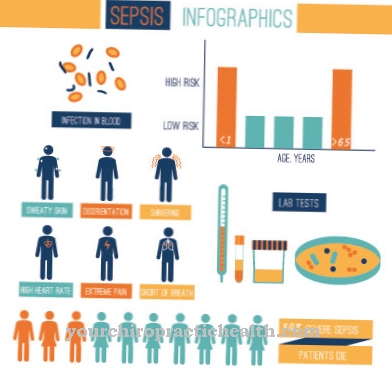
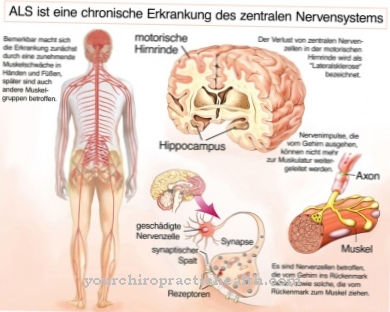
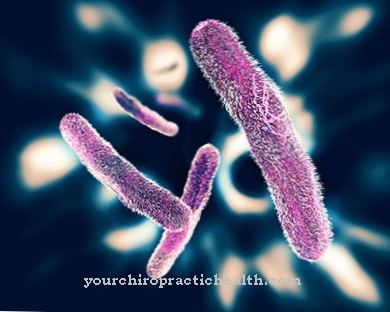







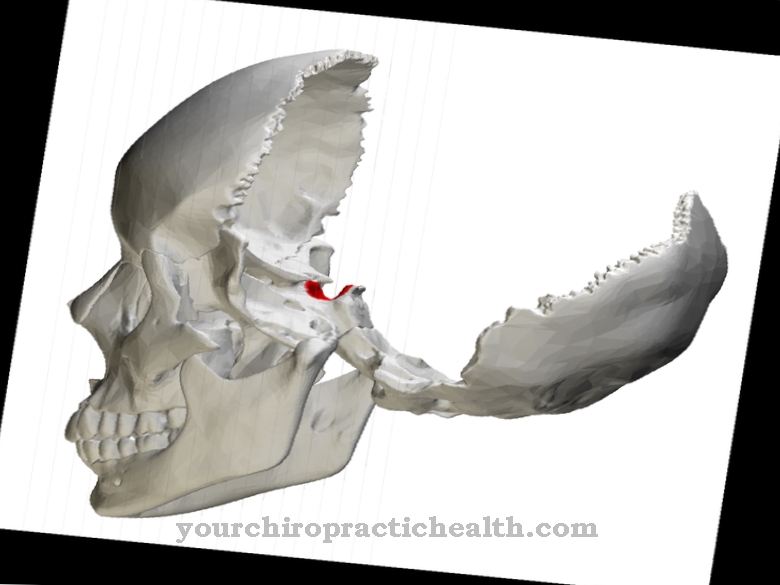
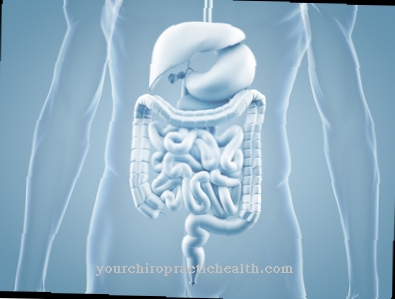


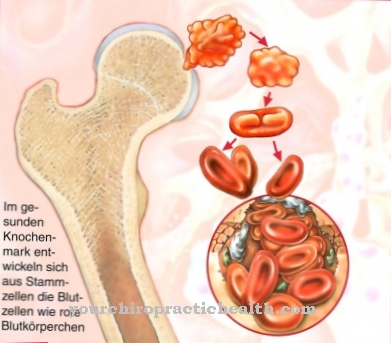








.jpg)

.jpg)
